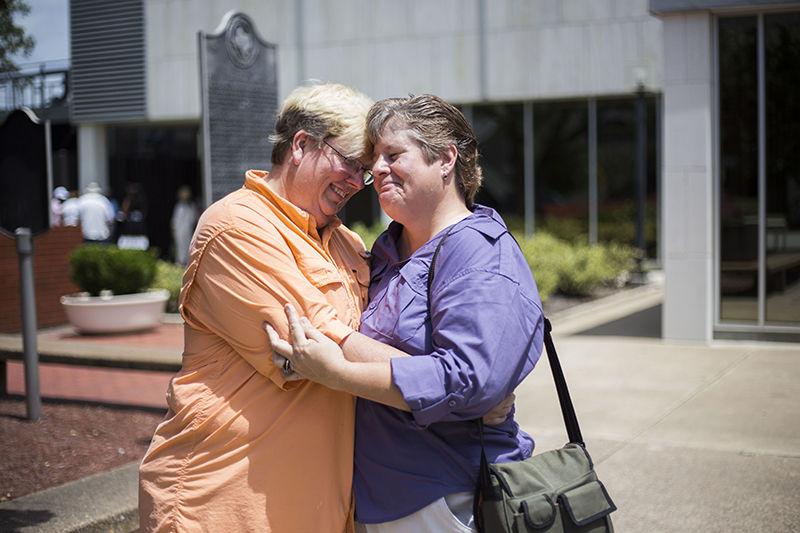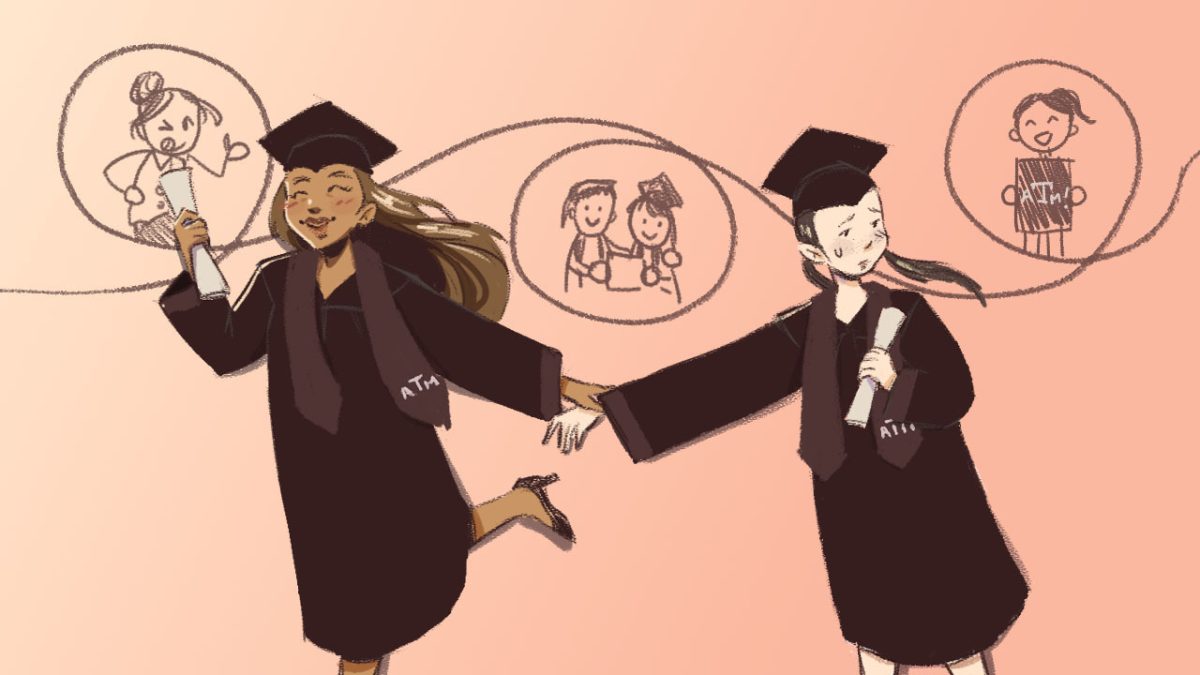In a landmark decision on Friday, June 26, The Supreme Court voted 5-4 to mandate the recognition of same-sex marriage in all 50 states. The ruling, which had Justices Kennedy, Ginsberg, Sotomayor, Breyer and Kagan in the majority, held that the 14th Amendment requires states to both license and recognize licenses from other states for same-sex marriages. Chief Justice John Roberts, along with Justices Thomas, Scalia and Alito, dissented.
I spent a good chunk of time Friday reading and re-reading the Justices’ opinions in the case. The Court’s legal logic, which stretches over 103 pages, can be difficult to follow at times. They reference an obscure and long-forgotten court case here, vault over to one of The Federalist Papers there, then skip back to oral arguments to try and tie it all together in an often confusing train of thought. After working my way through it though, I was left with one overarching belief; today, the Court got it wrong.
Now let me just preface this – before I’m ripped to shreds by the social justice piranhas of social media – I have nothing against same-sex couples. I firmly believe that they, like all Americans, should be afforded the freedom to practice the most intimate parts of their lives as they see fit, without fear for their safety or intrusion from government. That being said however, Friday’s decision by The Court – in their haste to redefine the central tenet of marriage – has insured that this will not be the case. In complete contradiction to their mandate, the Justices chose to evaluate this case on what they believed should be.
Justice Kennedy authored the majority opinion, which reads decently at first glance, but the arguments just don’t hold water under closer scrutiny. In the best example of this, the 14th amendment, which provides for substantive and procedural due process, is stretched so thin as to be practically transparent. This pillar of their decision is arguably central to all other conclusions drawn, and without it their case is weak at best. Justice Kennedy cites several cases in an attempt to justify the use of due process to completely redefine marriage – Griswold v. Connecticut, Loving v. Virginia, Turner v. Safley and Lawrence v. Texas – holding that the court has a long history of striking down laws, dealing both with marriage and homosexuality, as unconstitutional. As Chief Justice John Roberts points out in his dissenting opinion, however, none of these cases redefined the actual meaning of marriage – from one man and one woman, to one man and one man or one woman and one woman – rather, these cases were about barriers to the already well-established and accepted definition. Roberts aptly writes, “Removing racial barriers to marriage (Loving v. Virginia) therefore did not change what a marriage was any more than integrating schools changed what a school was. As the majority admits, the institution of “marriage” discussed in every one of these cases (Griswold, Loving, and Turner) “presumed a relationship involving opposite-sex partners.” (Majority opinion, p. 11) In short, the “right to marry” cases stand for the important but limited proposition that particular restrictions on access to marriage as traditionally defined (emphasis mine) violate due process. These precedents say nothing at all about a right to make a State change its definition of marriage, which is the right petitioners actually seek here.”
Indeed the petitioners do admit that there is no historical precedent, either in our society or those around the world, for defining marriage as being between members of the same sex. Despite this, petitioners had no qualms about convincing the court take up their charge and, in one swoop of judicial activism, redefine an entire institution to satisfy their own ends.
What is truly at stake here – far more than just a redefinition of marriage – is an undermining of one of the most significant principles of our constitutional republic; the system of checks and balances. Far from being hyperbole, the natural and logical progression from The Court’s decision is that they will now be asked to step in more and more, not where an enumerated constitutional right has been violated, but rather where group of citizens has deemed the legislature’s actions as unsatisfactory. This decision sets a precedent that, no longer will cases be judged on their merits, but rather by the ‘sincerity’ of the petitioners’ belief in their entitlement.
Justice Kennedy exemplifies this when he writes in the majority opinion,
“It cannot be denied that this Court’s cases describing the right to marry presumed a relationship involving opposite-sex partners. The Court, like many institutions, has made assumptions defined by the world and time of which it is a part.”
Although the court certainly has made assumptions in past decisions, this type of redefinition flies in the face of thousands of years of tradition and hundreds of years of American legal precedent, and assumes its authority based on a view of that precedent – directed more by what the court thinks it’s role ought to be in the “world and time of which it is a part”, than of the legal framework on which this nation was founded. Their behavior is not only arrogant but also presumptuous, and is reminiscent more of lawmaking than law reviewing.
In the coming weeks, much will be made of what proponents of traditional marriage have lost in this court’s decision, but truly what the petitioners and all those supportive of their cause have lost is much greater. They have lost a chance to have their voices heard in representative government, for winds of social change to blow their cause into the mainstream and for that cause to have true acceptance, not by judicial decree, but by consent of the governed. The court, by as narrow of a margin as is possible, decreed to more than 300 million Americans what marriage should really mean to them. In doing so they have made a short term gain toward what can only be described as a personal agenda, but they have done so at the price of galvanizing individuals who wanted to have an honest conversation about the matter, and relegated to second class citizenry anyone who might have a different point of view.
The five Justices who voted Friday to cut short the discussion – the discussion that the people and their elected representatives were having around the country – have stifled all the progress that could have been made on what marriage truly means in our modern society. To the many who have tried to hold true to their religious convictions, even as forces far removed from their everyday lives debate a central precept of their belief system, this decision represents nothing more than dictatorial decree and unconstitutional redefinition of their 1st Amendment rights.
As Chief Justice John Roberts said in the closing of the dissenting opinion “If you are among the many Americans—of whatever sexual orientation—who favor expanding same-sex marriage, by all means celebrate today’s decision. Celebrate the achievement of a desired goal. Celebrate the opportunity for a new expression of commitment to a partner. Celebrate the availability of new benefits. But do not celebrate the Constitution. It had nothing to do with it. I respectfully dissent.”
Duncan Rankin is an ag leadership and development senior and writer for The Battalion.










